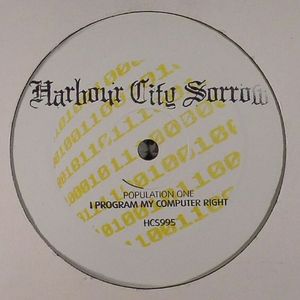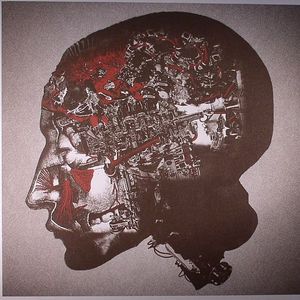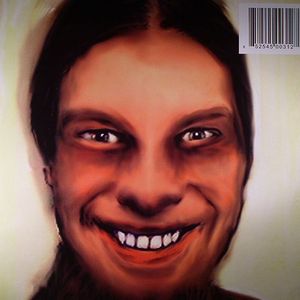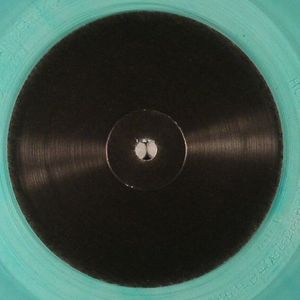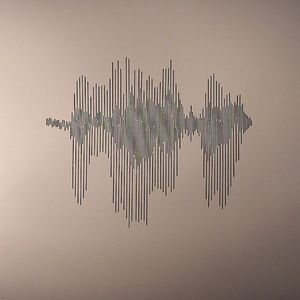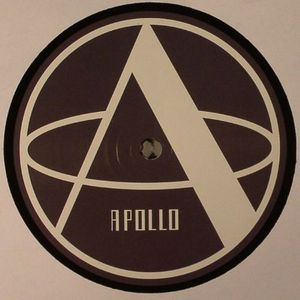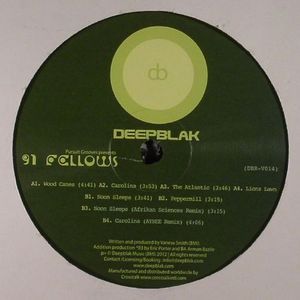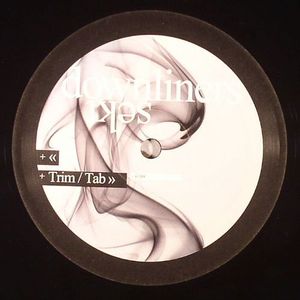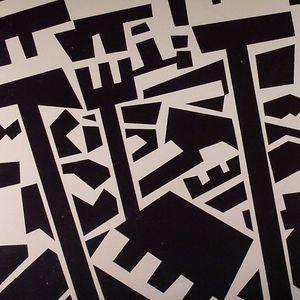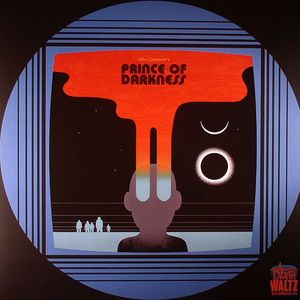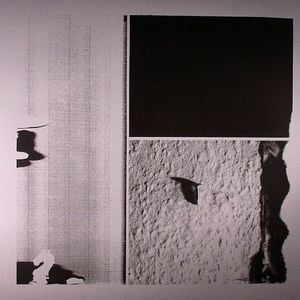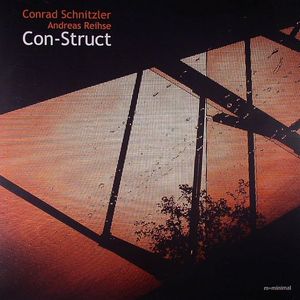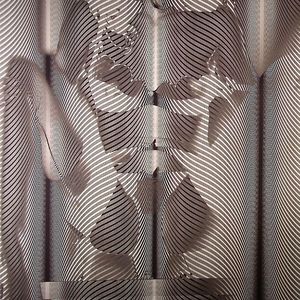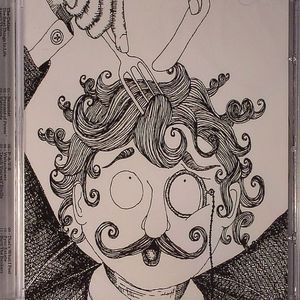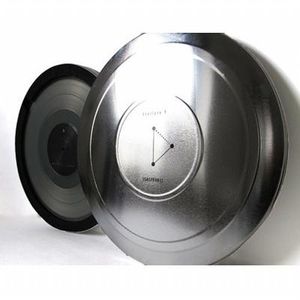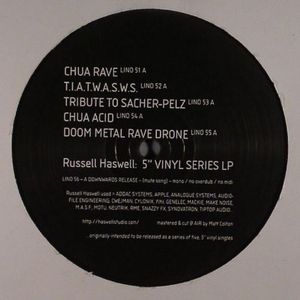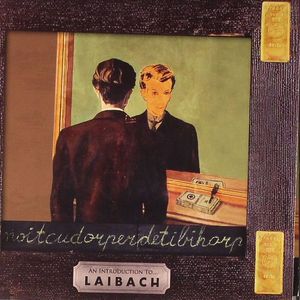
Juno Recommends Experimental
Leftfield Recommendations October 2012
Read more...
1
Cat: HCS 994. Rel: 17 Sep 12
Review: Holland's Harbour City Sorrow snaps up Detroit's Population One aka Terrence Dixon. The label heads continue to impress with their fine selection of artists and crafty tracks and their seventh release is an all-out house jewel. Terrence kicks things off with "A Cosmic Display Of Beauty", a fascinating shuffle through aquatic synths and crystal melodies but things really get going on the title track, where a warm bassline swallows up the messy bric-a-brac of percussion which moves fanatically next to the addictive 'I Program My Computer Right' vocals. Over on the flip, "Octagon" is a ravey, nu-skool Detroit piece which confuses and surprises with its alignment of haunting melodies and a bouncy synth bass. Lastly, "March On" moves steadily forward with a progressive beat which rapidly transforms into a mechanical machine workout. There are also a limited number of transparent green copies for ya!
...Read more
out of stock £6.66
2
Review: The second release of Old Apparatus's Sullen Tone imprint sees the first of a trilogy in which a whole record is given over to a different member of the collective. It's still attributed to Old Apparatus, but the difference audible across Realise is stark; although opener "Chicago" still growls and lurches like the alternate reality dubstep of their previous releases, its piano riff and 4/4 beat references the house music of its namesake, while the percussion of "Found" rattles like a steampunk pinball machine. "Holding" meanwhile sounds like a combination of Druqks-era Aphex Twin and King Tubby dub, funnelling tight D&B breakbeats through cavernous brass, and closer "Realise" stacks layer upon layer of atmospheric pressure on its funereal clockwork motions.
...Read more
out of stock £5.63
3
Cat: HOS 357LP. Rel: 17 Sep 12
Industrial/Noise
Review: ** Repress on clear vinyl ** Hospital Productions have been around for a hell of a long time, with releases dating back to 1998. For the last fifteen years they've progressed impressively and have grown by expanding their catalogue as far as black metal. Silent Servant, one half of the now defunct Sandwell District label, makes his comeback for the American label with sheer elegance and emotion. Negative Fascination is a true LP, with all the productions representing an entity rather than a collection of dancefloor tools. Tracks such as "Invocation Of Lust", which sway effortlessly across desolate plains of synths and distant melodies, fall neatly into place with others; "Moral Divide (Endless)" being its natural epilogue as ghostly sounds and transmuted effects are caught in a whirlpool of rough, analogue beats. Only certain parts such as "The Strange Attractor" could be bracketed as belonging to the techno realm, with most other tracks containing much more than just club antics. "Temptation & Desire" could only be considered techno in so far as its dark approach, but it's the ingenious sound arrangements that fall between their spaces which make this album a true gem. Highly recommended.
...Read more
out of stock £16.46
4
Cat: MEA 008. Rel: 24 Sep 12
Industrial/Noise
out of stock £7.49
5
Review: Seminal album alert... If this isn't already in your collection, now's the time to get it. Recognised as one of Aphex Twin's most accomplished long players, I Care Because You Do is a comprehensive exploration into the future of electronic music that was penned 17 years ago but doesn't sound dated in any way. Featuring smooth segues from expansive dreamy soundscapes ("The Waxen Pith") to icy breakbeat workouts ("Wax The Nip") at points this is the warmest, cosiest friend you'll ever have. At others it's the most uncompromising foe you'll ever meet. Essential for music lovers.
...Read more
out of stock £24.38
6
out of stock £6.66
7
Review: The EP prior to Peter Van Hoesen's Perceiver was called Transitional State, and the title sums up the approach on this album and the general direction that he has been heading in for the past few years. Listen to even his recent dance floor-based releases on Komisch, Ostgut and Time To Express and you'll hear glitchy slivers of percussion amid the punishing, merciless basslines. Van Hoesen has emphasised this abstract side to his sound on Perceiver. "Objects from the Past" and "To Alter A Vector" unfold in slow motion, with textured sounds floating over lurching rhythms, breaking occasionally to allow the dubby beats come to the fore. In between balancing the functional and the abstract, the album also presents a third way, and it results in the most impressive track on the album; "Nefertiti Always Beyond" boasts nickel-plated drums and Peter's trademark sub-bass, but there is something looser about the arrangement. What it may lack in precision it compensates with a sense of punky energy, its rhythm spasming like a Magazine song trapped in the body of a relentless techno arrangement. It's the centre piece in a perception altering album.
...Read more
out of stock £11.66
8
Review: With his personal and experimental take on lo-fi sonics amassing a healthy amount of interest, Ssaliva brings forth this vinyl release of his engrossing loop and pad studies. There's a dense quality to the tracks as sounds in the foreground roll over audible shapes in the distance in a humming, organic fashion. While the ideas tend to be simple ones, there are more than enough layers to this album to reward repeated in-depth listening, working myriad found sounds into the mix alongside plucked instruments and considered synth deployment for an overall ambient but captivating cocktail of modern, rustic electronica.
...Read more
out of stock £8.96
9
out of stock £4.58
10
Review: Having impressed with her leftfield, experimental dubstep antics on Tectonic (see the 2011 album Frantically Hopeful), Vanesse Smith continues her journey into the outer reaches of electronic music with an expansive EP of spooky, off-kilter grooves and soundscapes for Deepblak. It is, as you'd expect, a defiantly leftfield set, moving from intense, percussive paranoia ("Wood Canes", "Lion Lawns") to creepy, nightmarish ambience ("The Atlantic") via pin-sharp interludes ("Carolina") and fluid, melancholic IDM ("Peppermill"). For those who require a touch more dancefloor potential, there's also a delicious deep dubstep rework of "Carolina" from Aybee that should hit the spot.
...Read more
out of stock £9.79
11
out of stock £5.21
12
Review: The second Aphex re-release this week, and a second time to pick up on a genuine moment of electronic history. Originally released in 1996, his fifth album in as many years meant business from the very moment the wild and whimsical opener "4" scribbled it way through the speakers. With jaunty jams such as "Cornish Acid" and "Fingerbib" running amok mid-set, Richard D James Album acted as a fine mission statement to expect the unexpected and never anticipate formula or form. And it still carries that very same message today. Essential.
out of stock £16.66
13
Cat: DW 005. Rel: 01 Oct 12
Soundtracks
Review: With yet another unearthed gem from the vaults of forgotten soundtracks, Death Waltz serve a treat to any fans of 70s horror films and the golden age of accompaniments films of the era enjoyed. In this case, the film is a Spanish / Italian low-budget gore fest that just happened to have a deadly soundtrack by Giuliano Sorgini, who taps into a similar vein to Lalo Schiffrin in places, with more traditional horror themes spread throughout. By and large it's the more funk-driven cuts that stand out, but there's plenty to enjoy in the ghoulish groans and hammy string pieces too.
...Read more
out of stock £14.79
14
out of stock £6.66
15
out of stock £6.66
16
Cat: TRR 213LP. Rel: 17 Sep 12
Post Rock/Experimental
in stock £17.29
17
Cat: DW 006. Rel: 01 Oct 12
Soundtracks
Review: Following the celebrated reissue of the epochal Escape From New York, Death Waltz are turning back to their old flame John Carpenter for some more 80s soundtrack delight. This time it's the schlocky joys of Prince Of Darkness, featuring more of those ethereal synths that define the Carpenter sound, from choral notes to bombastic canned strings and spooky bass arpeggios. It's not hard to see why this music is enjoying a revival at the amount as these compositions swell in your ears, so rich in atmosphere and character as they are. Of course soundtrack music is written as an accompaniment, but when the music is this powerful it stands on its own.
...Read more
out of stock £15.83
18
out of stock £7.49
19
Cat: MM 014LP. Rel: 17 Sep 12
Experimental/Electronic
out of stock £11.46
20
out of stock £13.96
21
Cat: ST 012. Rel: 10 Sep 12
Experimental/Electronic
out of stock £8.33
22
Review: With a number of release series to its credit, you'd be forgiven for thinking that Stroboscopic Artefacts was a long established label - the reality is markedly different of course and Lucy's label has been in existence for just three years. That it is able to persuade producers of the calibre of Silent Servant and Roll The Dice to contribute to its compilations says a lot about the status it enjoys within techno music. Perhaps such respected acts are impressed with the fact that, asStellate 2 demonstrates, the label quite often operates at the fringes of electronic music. The tracks from Dadub on the compilation suggest as much; "Endless" and "Refraction" are deep, chord -heavy compositions, swelling and climaxing but without the 4/4 anchor that would make them effective dance floor tracks. They are also not representative of the mood that the second Stellate captures. For a better understanding, listeners should turn to the droning textures, crashing drums and jittery vocal samples of Silent Servant and Luis Farfan's "La Negra Luna" and the duo's vortex of noise on "No Te Debia Amar", or indeed the Hammer House of Horror keys that prevail on Roll The Dice's "Ritenutol". The same sense of unease is audible on Plaster's contributions, with the stop-start glitchy rhythms on "Seber" and "Udis" also imbued with atmospheric textures and eerie atmospheres rising like rings of cigarette smoke. Difficult to define and hard to pin down, the fleeting mood and shadowy feel of Stellate 2 - housed in an exquisite metallic box - explains exactly why Stroboscopic Artefacts has become such an essential outlet.
...Read more
out of stock £39.16
23
out of stock £10.42
24
out of stock £4.38
25
out of stock £8.29

 GBP
GBP




